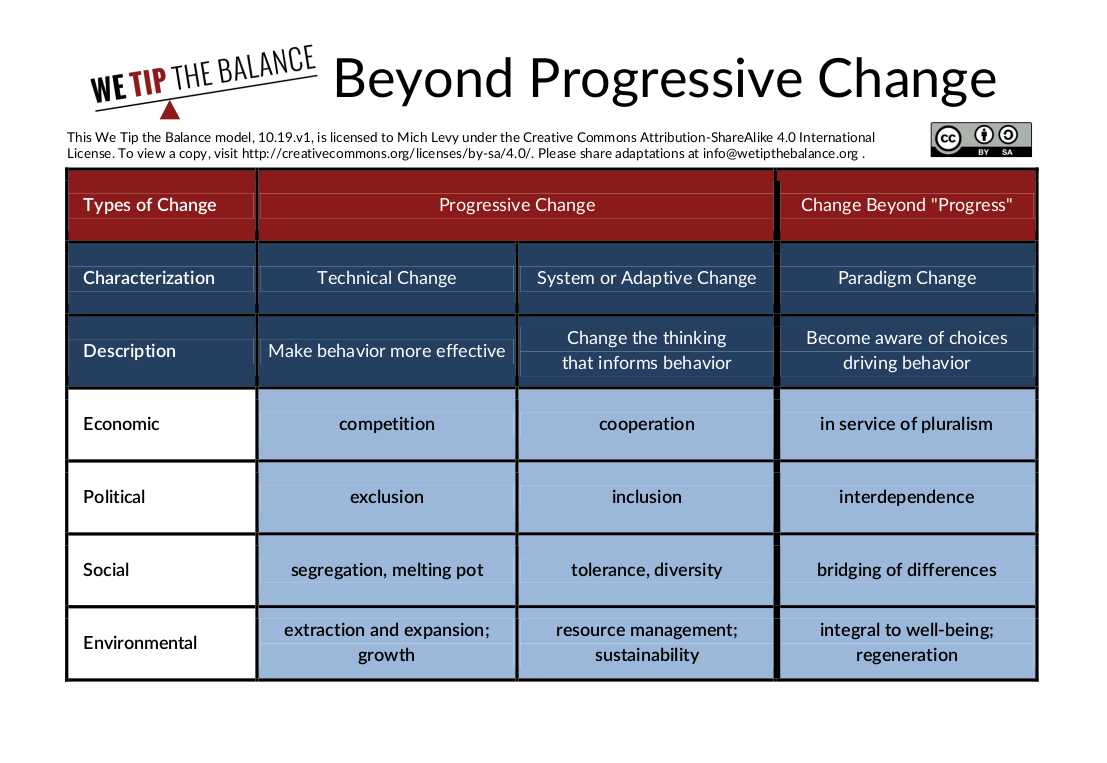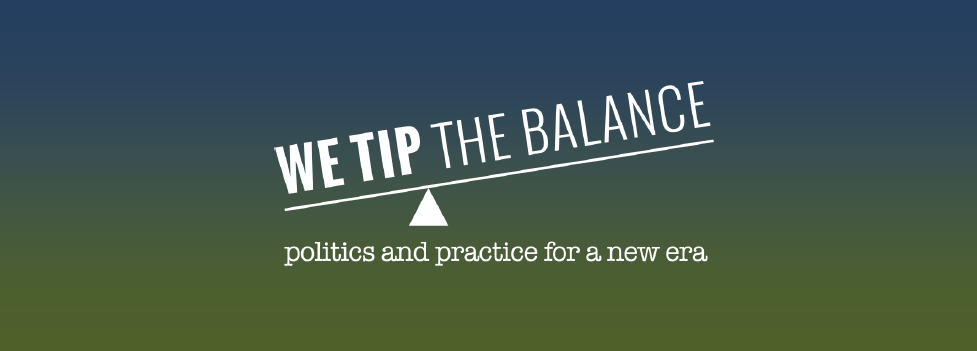A paradigm is a worldview, a pair of glasses, an entire coherent package that shapes not only what we see, but how we see, how we know, how we think. To crudely summarize Thomas Kuhn's work on the structure of scientific revolutions, a paradigm shift occurs when the current paradigm no longer explains the facts -- and when a new paradigm that is more workable becomes commonly accepted.
The state of our economic, political, social, environmental and even climatic systems are all now inexplicable from within our current paradigm: economic progress, progressive politics, social progress and a flourishing, un-expendable environment no longer describe even the imaginary of daily life. This is change of a high order.
There are different schema used to conceptualize orders of change, but I characterize it this way:
Technical change, a first-order change is when we learn how to do something better; we get better at what we already know and think is important (think business management, or how to make more profit).
System change or adaptive change, a change of the second-order, occurs when there is a realization that we might do it even better if we thought about it differently; we improve our understanding or method toward reaching the same goal (like shifting a business model away from competition and toward cooperation).
Paradigm change, or change of the third-order, however, is when there is an awareness that what we think is important is subjective or limited in some way and are able to change our beliefs, thoughts, feelings and actions toward some new agenda (like a shift to values and priorities that aren't fundamentally economic).
Holding on to a reflection of a world that's no longer here is not unlike the experience of staying in a soul-crushing job or relationship for the sole reason that it's not yet possible to imagine anything different. It doesn't make sense to leave what we have if we don't know where we're going. But, there is the irony that at least some new possibilities do not emerge unless we make ourselves available to them.

